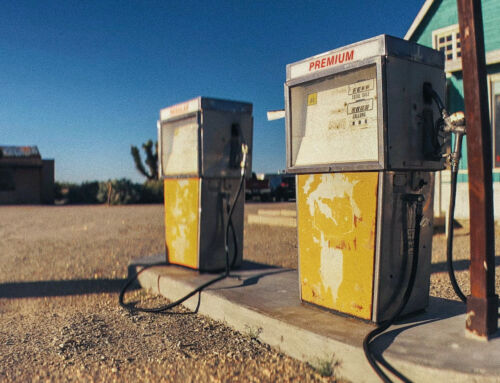View by Topic
Recent Articles
-
Congress Blocks California’s Gasoline Car BanSaturday, May 31st, 2025
-
EPA Will Keep Current Limits for “Forever Chemicals” in Drinking WaterSaturday, May 24th, 2025
-
Court Indefinitely Pauses SEC Climate Rule LitigationSaturday, May 17th, 2025
-
Maryland is About to Regulate Mold But is the Cart Before the HorseSaturday, May 10th, 2025
View by Month/Year
“Green Building Law Update” Headlines
Recent Articles & News from
Stuart Kaplow’s blog
at GreenBuildingLawUpdate.com
- Congress Blocks California’s Gasoline Car Ban: A Legal and Policy Analysis June 1, 2025
- EPA Will Keep Current Limits for “Forever Chemicals” in Drinking Water May 25, 2025
- Court Indefinitely Pauses SEC Climate Rule Litigation May 18, 2025
- Maryland is About to Regulate Mold: But is the Cart Before the Horse? May 11, 2025
Subscribe to the Green Building Law Update!
Stuart Kaplow brings his expertise and extensive experience to the table with his unique digital publication, "Green Building Law Update". Subscribers receive regular updates to keep them informed about important issues surrounding Environmental Law, Green Building & Real Estate Law, as well as the emerging demand for Environmental Social Governance (ESG).
Get fresh content through the lense of Stuart Kaplow's cutting-edge expertise, innovative commentary and insider perspective. Don't miss another issue! Subscribe below.

Scope 4 GHG Emissions
Scope 4 greenhouse gas emissions are not new. They date to 2013 when the Greenhouse Gas Protocol identified “avoided emissions” as emission reductions that occur outside of a product’s lifecycle or value chain, but as a result of the use of that product.
It was actually a decade ago that the GHG Protocol released “a survey to scope out the need for a new standard to help companies quantify and report the ‘avoided emissions’ of goods and services that contribute to a low-carbon economy – such as low temperature detergents, fuel-saving tires, or teleconferencing equipment and services.” And from that survey, Scope 4 GHG emissions were born.
Some context is helpful, especially for those just getting their arms around measuring and reducing GHG emissions:
Scope 1 GHG emissions are “direct emissions” that occur from sources that are controlled or owned by an organization (e.g., emissions associated with fuel combustion in boilers, furnaces, and vehicles) and are modest in abundance.
Scope 2 GHG emissions are “indirect emissions” associated with purchased electricity, steam, heat, or cooling and are generally greater in contribution than Scope 1. Although Scope 2 emissions physically occur at the facility where they are generated, they are accounted for in an organization’s GHG inventory because they are a result of the organization’s energy use.
Scope 3 GHG emissions are the result of activities from assets not owned or controlled by the reporting organization, but that the organization indirectly impacts in its value chain both upstream and downstream (.. we are doing Scope 3 studies in several business sectors and the calculations are batshit crazy) almost always representing the majority of an organization’s total GHG emissions.
Scope 4 GHG emissions are “avoided emissions” not a required scope to currently report in many contexts (as are Scope 1, 2 and 3). Scope 4 are squishier and do not have broadly accepted standards. They quantify the impact of an organization’s products on reducing emissions outside of their value chain, including avoiding emissions saved by efficiency improvements or reductions in carbon emitting activities. And while they are a decade old, their use is emergent and exploding on the scene.
A good example of Scope 4 emissions may be the GHG emissions avoided by the use of video conferencing. Arguably Zoom Video Communications avoids significant emissions. The communications technology company’s Zoom platform reduces the number of employees commuting to the office, staffers traveling to meet clients, and reductions in other carbon emitting activities, thus causing emissions to be avoided which are quantified as the Scope 4 emissions for the communications technology company.
Another example of Scope 4 emissions may be GHG emissions avoided by the efficiency improvements of low temperature laundry detergent. Unilever ran television ads in the UK for its washing liquid stating that “Persil products remove stains at 30 degrees Celsius and in 60 minutes.” And the ad concluded, the brand “continually improves their products to be kinder to the planet.” However, the television ad has been banned by the UK Advertising Standards Authority for greenwashing and making misleading environmental claims over the protestations of Unilever which argued it is well documented that reducing the temperature of a wash reduces carbon emissions and that this ad helps promote this.
Companies need good hard facts when making ESG claims including GHG emission claims and specifically cutting edge Scope 4 emission claims. One of our key roles is to caution clients not to make unqualified general environmental claims because ‘‘it is highly unlikely that [businesses] can substantiate all reasonable interpretations of these claims,’’ the Federal Trade Commission standard for challenging environmental claims.
As companies strive to hang meat on the bones of their Net Zero pledges, Scope 4 emissions will be valuable tools for success. Reporting on Scope 4 avoided emissions may allow for a business’ reputation to be enhanced by not only describing the climate positive value of the product or service but promoting the “decarbonizing power” of the product.
We are assisting companies in using avoided emissions to help them reach their climate goals and meet increasing demands from stakeholders including customers, investors, and regulators.
A live webinar “Green Hushing vs Confidentiality,” 30 talking points in 30 minutes, Wednesday, November 16 at 9 am EST presented by Stuart Kaplow and Nancy Hudes on behalf of ESG Legal Solutions, LLC. The webinar is complimentary, but you must register here.









